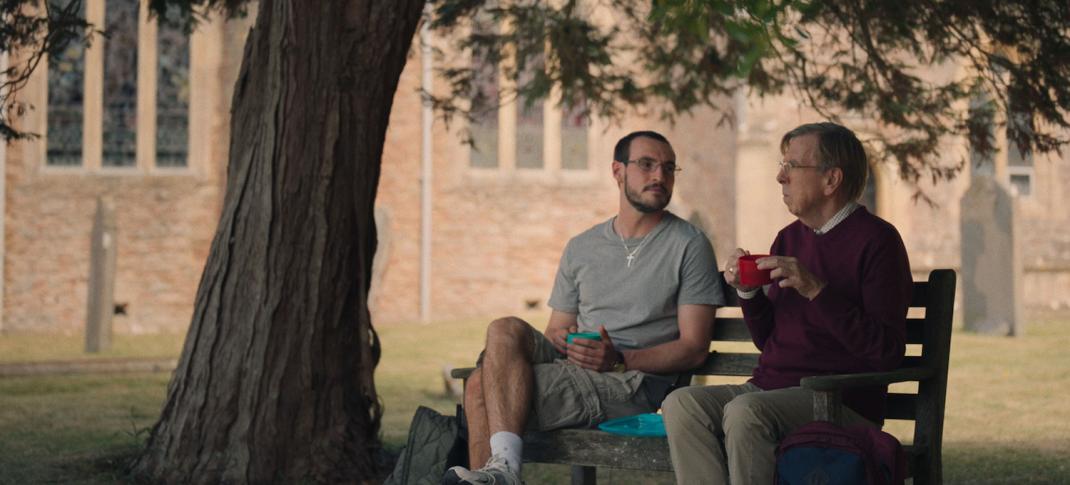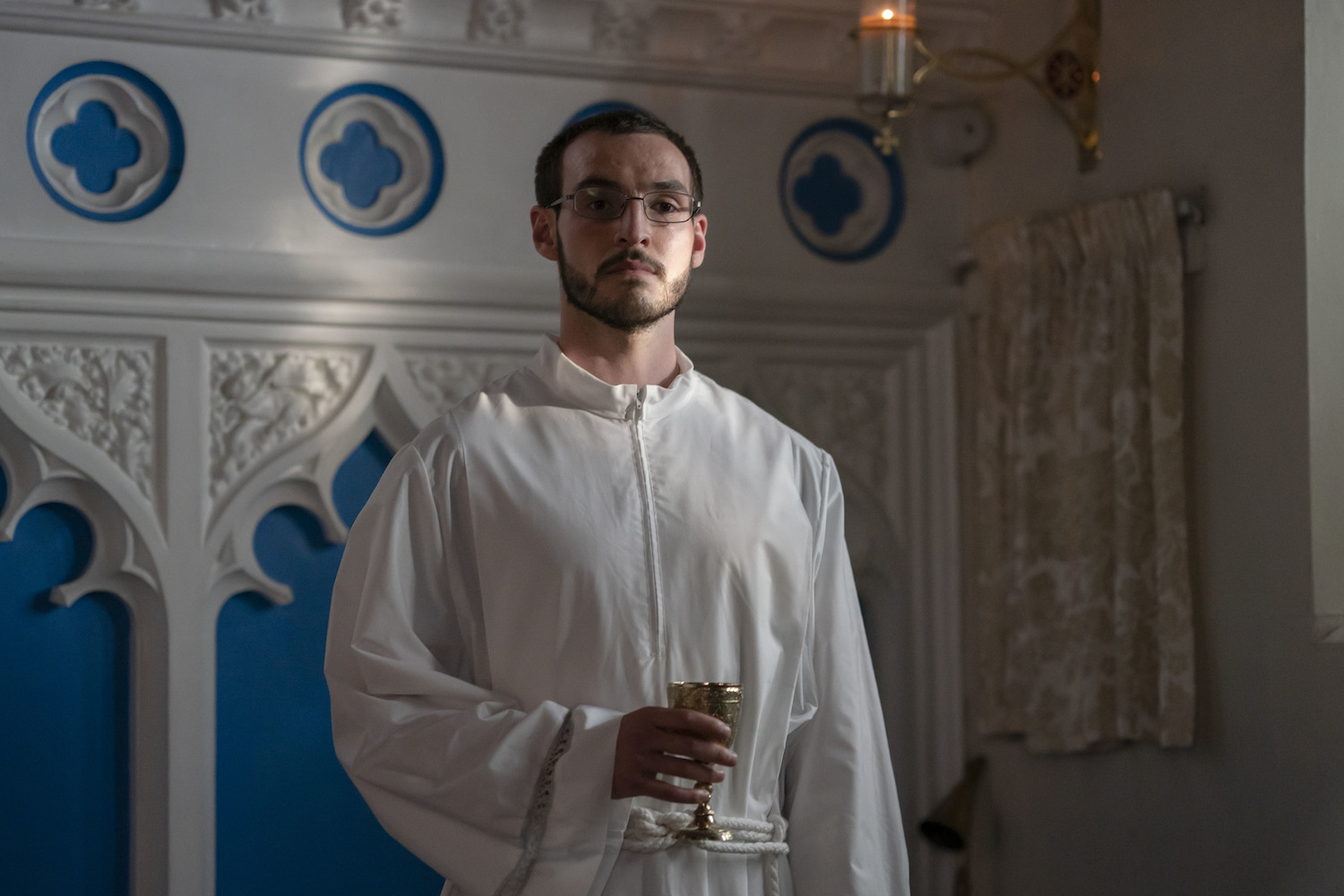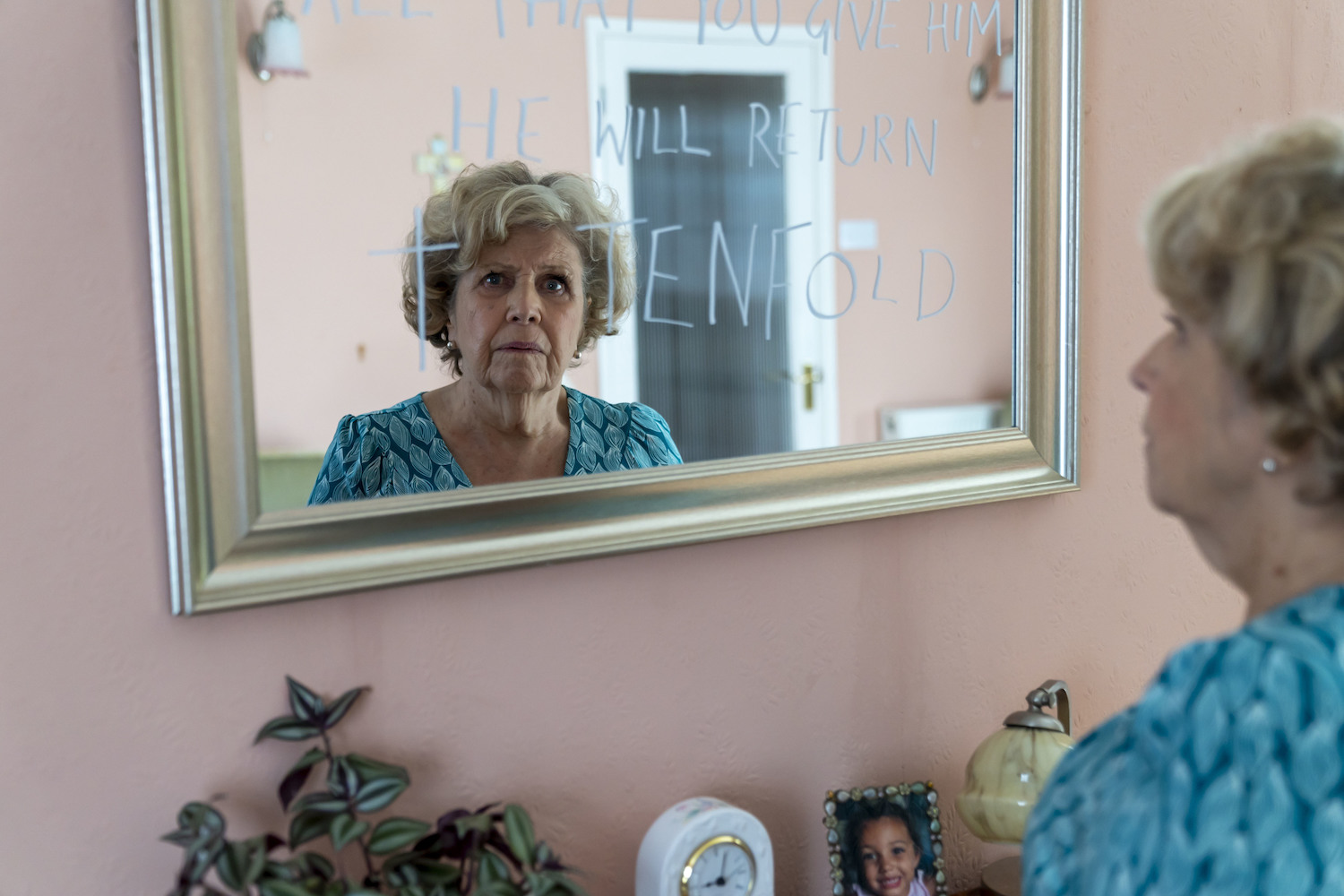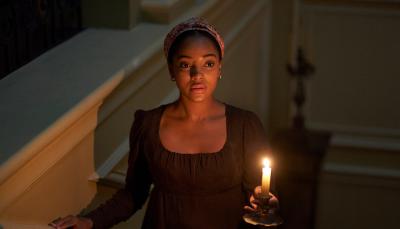'The Sixth Commandment': A True Crime Story About Loneliness & Isolation

Éanna Hardwicke and Timothy Spall in "The Sixth Commandment"
(Photo: BritBox)
As a genre, true crime is often focused on the worst of humanity. It's usually why people tune in, after all. We're both appalled and fascinated by the terrible deeds of the darkest people among us, and far too often we tell the stories of their crimes from the wrong direction. Truth and dignity are often sacrificed on the altar of sensationalism and victims are often portrayed as little more than a means to an end, a vehicle by which we can witness the macabre and monstrous for ourselves.
American audiences may not be terribly familiar with the story of Ben Fields, a charismatic student who drugged, gaslit, and finally murdered university lecturer and novelist Peter Farquhar in Buckinghamshire in 2015. (And attempted to do the same to his neighbor, Ann Moore-Martin.) It's an awful story of exploitation, loneliness, and deceit that's brought sensitively and heartbreakingly to life in the new Britbox series The Sixth Commandment, a four-part true crime drama that does us all the favor of refusing to pretend Fields is anything other than what he was — a monster.
Instead, the show delicately and compassionately explores the stories of Fields's victims, casting both Moore-Martin and Farquhar as deserving of sympathy rather than ridicule and embracing the sincerity of their desire for genuine connection. This isn't a story about how two elderly people were dumb enough to fall for a scam that seems obvious to those watching from the outside. It's a about how much we all long for love and companionship, no matter how old or well off we are.
The series' first two episodes are almost entirely devoted to showing us Fields' victims as three-dimensional people rather than awful statistics waiting to happen. Timothy Spall (Spencer) is particularly remarkable as Peter Farquhar, infusing his portrayal with a complicated balance of loneliness and longing. The central emotional conflict between Peter's devout faith and his homosexuality is tenderly constructed, and Spall shines in the moments where he must try to encompass the frustration he feels that he, unlike his heterosexual brother, has essentially been condemned to what he is sure must be a loveless life.
No wonder he was such an obvious target for Ben Fields (Eanna Hardwicke), a bright and talented student who seems to share his love of scripture and poetry, who's kind and attentive in a way that allows us to see Peter open up in a way he's never done before. He doesn't even want sex — he's fine with a good cuddle! That all of this is too good to be true is targeted like a laser at Peter's specific weaknesses seems evident to us. (In truth, there probably is a reason to pause, at least if someone forty years your junior starts promising you forever.)
But it's easy to want to believe it, that Peter might have finally found the answer to his crushing loneliness. Which is why what comes next — dizzy spells, blackouts, inexplicable frailty, an eventual suspicious death blamed on an alcohol addiction he never displayed — is so incredibly hard to watch.
In real life, Ann Moore-Martin only lived several doors down from Farquhar, a twist that painfully illustrated how isolated both people were in their picturesque neighborhood. It seems hard to imagine that someone so close to Field's crime could fall victim to a similar plot or that the perpetrator would dare try to pull the same con again so quickly. But that's precisely what happened.
Anne Reid (Sanditon) is as good as we all likely expected as Moore-Martin, a devout Catholic who finds renewed personal and spiritual purpose in Field's supposed affections. Once hospitalized from the poisons Field gave her, her slow realization that the man she decided to believe in was a false idol of the worst kind and that she ultimately dies shamed and embarrassed is another gut punch in a series full of them.
One of the best things about this series is it takes its characters' faith seriously. Both Peter and Ann's sincere belief is not something to be belittled or mocked, nor does the series treat it as something to blame, a weakness that somehow made them susceptible to Field's advances. Instead, we see the genuine deep value it provides to their lives in structure, comfort, and community. In a show called The Sixth Commandment, that feels very necessary indeed.
Unfortunately, The Sixth Commandment's first two episodes are so strong that it's almost jarring when the focus shifts to the investigation into Field's crimes and his subsequent trial. Everything becomes a bit too procedural-ish, and the drama loses some of the human touch its first half had once Spall and Reid are so much less present. The show deserves praise for the thoughtful way it works to illustrate the ways Peter and Ann's deaths — and the questions surrounding them — impacted their loved ones; however, only Annabel Scholey's (Medici) ferocious performance as Moore-Martin's niece Anne-Marie comes close to carrying the same emotional weight.
Hardwicke is allowed to display his creepier side via flashbacks that detail many of his cruelest and most shocking behaviors, most of which happened in the background of scenes we saw play out previously. From emotional gaslighting and straight-up bullying to manipulating his friend Martin (Conor MacNeill) into helping carry out his various schemes. (The show's biggest flaw is perhaps its refusal to explain how Martin got involved in all of this, how much he knew, and what reason he could have had for helping him so often.)
Perhaps the problem inherent in making Field's victims such fully realized people within the world of the series is that its ending can't ever be truly satisfying. Justice isn't possible in a story like this. Maybe the best it can do — the best any of us can do — is to honor their stories by telling the world who they were, not how they died. In that, at least, The Sixth Commandment succeeds.
All four episodes of The Sixth Commandment are streaming on BritBox.







